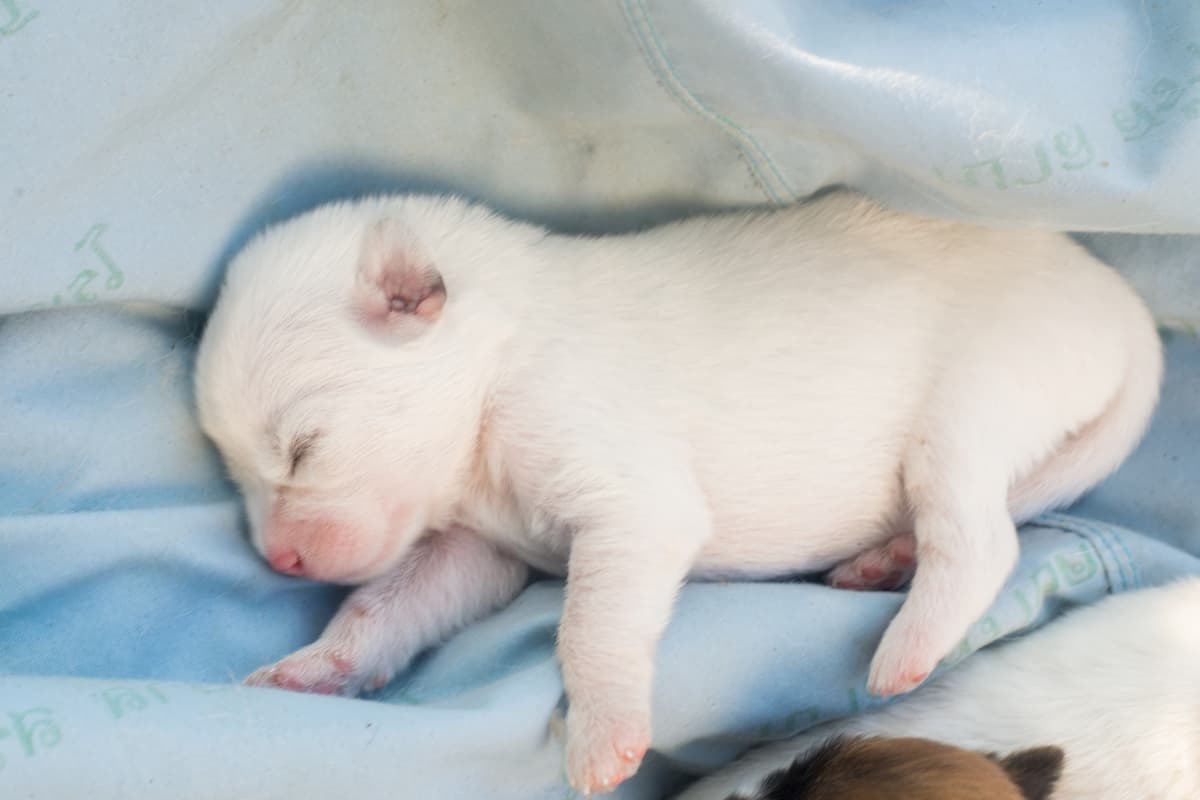If you’ve just brought home a furry friend, chances are that every little change in behavior can make you worried about its well being! While some of these behavioral changes might be completely harmless, you might need to be worried about others and act accordingly.
We’ll be answering all your questions and what steps to take to ensure the well being of your puppy!
Natural Causes
If your puppy is in the growing stages of life, you should notice how it doesn’t take long for them to reach their full size. For example, a puppy can practically multiply in size by the time it’s only 3 years old!
A puppy’s fast growth also means that their mental and physical health is developing at an enhanced rate. When this happens, their body needs a lot of sleep to keep up with the energy that’s constantly being spent.
Your puppy also needs to build a strong immune system to fight against any germs it might face during its life. Getting enough sleep means that the puppy is getting plenty of rest. Therefore, most of the time, you shouldn’t be worried about your puppy sleeping more than usual.
How Long Do Puppies Really Sleep For?
While it might sound unnatural considering what a bundle of energy your puppy might be, they can need anywhere from 18 – 20 hours of sleep per day. The few hours of the day when they’re awake is spent living new experiences, getting to know new places and people, and learning their way around the world, all of which takes up a lot of energy.
Keep in mind that this estimate is only applicable to puppies less than 12 weeks old. After 12 weeks, you can expect them to sleep for about 15 hours per day. Larger dogs that grow up fast usually need more sleep than smaller breeds.
Once the puppy is older than a year, you can expect them to get anywhere from 12 to 18 hours of sleep depending on the breed.

How to Make Sure Your Puppy Gets the Proper Amount of Sleep
When you’re dealing with a new puppy, you have to follow a few tips to ensure that it develops a proper sleeping pattern and grows up into a healthy dog. Since the puppy is going to be sleeping for most of the day, you need to provide a proper sleeping environment both during the day and night.
- Don’t Disturb Your Puppy: We get it, you want to cuddle with your puppy all the time. But, this might lead the puppy to rely on you to fall asleep. Make sure you leave them alone to sleep by themselves.
- Set Up a Proper Place For Your Puppy: Make sure your puppy knows where it’s supposed to go when it wants to catch up on sleep. This could be a proper dog bed, dog crate, or just a carpeted corner where it can sleep in peace.
- Don’t Tire Your Puppy Out: Making your puppy exhausted with activity in its growing years will not only cause problems in his physical and mental well being down the line, but it might also cause behavioral issues.
- Set a Schedule: Now that you know growing puppies need a lot of sleep, get them into a proper schedule. Your puppy will need some downtime after it has been playing for a while or has just come back from a walk.
- Keep the Sleeping Area Quiet at Night: To let your puppy get a healthy amount of sleep, make sure that it’s not around loud noises or bright lights at night. Put the crate or dog bed in a place that doesn’t get too much direct sunlight in the morning. If there’s a TV or sound system in your house, make sure it doesn’t disturb your puppy when it’s asleep.
- Restrict Food and Water Before Bed: For the few hours before you put your puppy to bed, don’t let it eat or drink water. This will lead to a healthier sleeping pattern, as their body won’t be spending any energy on digestion.
- Treats Always Help: Even though puppies need to sleep for most of the day in the first few weeks of their life, they won’t sleep for hours at a time. They might be hesitant to go to their sleeping place and might whine and bark when you try to put them to bed. Giving them treats for good behavior can be a part of their sleep training in the form of positive reinforcement.
- Make the Sleeping Area Desirable: Puppies don’t respond well to things like blankets or toys in the beginning because they’ll be too tempted to chew them up! The crate or sleeping area needs to be comforting and inviting. If possible, try to keep the sleeping area close to you.
Unnatural Causes
While sleeping a lot is quite normal for new puppies, there are some health concerns that you should be on the lookout for. Some breeds are more prone to contracting diseases early on in life. These could be indicated by your dog not only sleeping throughout the day, but looking exhausted and sluggish in its waking hours.
Infection
Infections in puppies can be caused by a number of factors, including bacterial infections like leptospirosis or viruses like parvovirus. Leptospirosis can be characterized by clear symptoms of sickness, such as vomiting, diarrhea, and fever. Parvovirus will typically cause your dog to be dehydrated and look sickly.
Anemia
If your dog has anemia, it means that the amount of blood in its body is reduced. This can be caused by parasites like roundworms, hookworms, whipworms, or tapeworms. These worms can typically be seen in your puppy’s stool, making these conditions relatively easy to diagnose.
Poisoning
No matter how careful we are about our puppies, we can’t watch them 24 hours a day. There might be times on walks or just around the house when they end up eating something they shouldn’t. Regular items around the house like avocados, alcohol, chocolate, and coffee can be quite harmful to dogs. If you suspect your puppy has ingested any of these items, get them to a vet immediately.
Thyroid Deficiency
Hypothyroidism can be spotted in puppies because of the unhealthy, gaunt look they get when their body isn’t producing enough thyroxine. While this mostly happens in older dogs, there are cases where it can affect puppies as well.
Depression
This is a factor that often gets overlooked when talking about behavioral problems in puppies. If your puppy isn’t getting the right amount of love or attention at home, or has been recently transferred from another place, there’s a chance that it can be depressed. To help your puppy get out of its depression, you can use the following as a guide:
- Set up an exercise routine for your puppy. This will get the endorphins flowing and you should notice an improvement in their mood.
- Introduce other dogs or people to them. Evolution has made dogs love being around packs, so a trip to the dog park might help your dog feel better.
- Positive reinforcement is always a better way to train your dog than negative reinforcement. Try to enforce good behavior by rewarding good behavior.
Conclusion
If your puppy is sleeping for most of the day, it’s usually nothing to be worried about. Their physical and mental development, as well as immunity building, takes a lot of energy. As your puppy gets older, it should start needing less sleep.
However, there could be some other issues, like bacterial or viral infections or hormone deficiencies, that might be a cause for concern. If your puppy is sleeping throughout the day and is sluggish and lazy when it’s awake, it might be a good idea to see a vet. You might also want to check out this article about How to Give a Dog a Pill.
We hope that this article has answered all of your questions. Please check out our other articles on Natural Puppies for similar topics!






